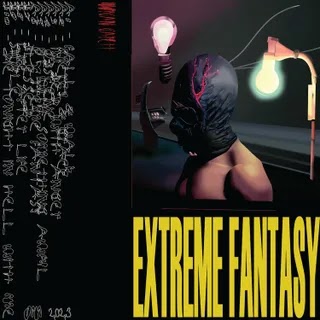Taking cues from Miles Davis’ electric period, the Spacebomb Records founder and Alabama sculptor join forces on a mesmerizing album rooted in improvisation, risk-taking, and unlikely musical chemistry.
Broken Mirror: A Selfie Reflection invites direct comparison to one of the most inspired purple patches in modern musical history: Miles Davis’ electric period of the 1970s. The album’s genesis is bold to begin with: In 2018, keen to kick old songwriting habits, Matthew E. White went into the studio with his septet to record a series of improvisational sessions in the spirit of the hard-driving fusion that Davis pursued from 1969’s In A Silent Way to 1975’s Agharta. Inviting the Alabama sculptor and experimental musician Lonnie Holley to add his vocals to the mix was another audacious move, throwing further unpredictability into the works with Holley’s freeform melodies and spontaneous delivery.
Broken Mirror chiefly invites comparison to Davis’ towering 1970 double album Bitches Brew, a record frequently cited by musicians outside the jazz community but rarely recreated. And for good reason: Bitches Brew is so dense, complicated, and inspired that mimicking its white-heat aura feels like a fool’s errand. White’s septet cooks up a thick musical soup whose dense percussive tangles, driving guitar, and almost atonal keyboard stabs are clearly descended from Davis’ masterpiece. So is the record’s improvisational spirit, which relies on modes and gestures rather than chord changes and melodies.
Listening to Broken Mirror, much like its inspiration, requires a kind of recalibration of the musical mind. The record is both ultra-musical in its abundance of ideas and strangely unmusical in its rejection of song structure and repetition, producing a kind of spiraling voodoo funk that swings between gritty and astral. Holley’s vocals, both weathered and sweetly innocent, balance life experience with wonder, gravity with levity, and are ripe with the mesmeric power of understatement. He doesn’t so much sing as emote, hitting emotional targets rather than musical cues. Holley recorded his vocals in a series of first takes after White played him edits of the 2018 septet sessions, and it is striking how well they reflect the album’s various moods.
“This Here Jungle of Moderness/Composition 14,” with its anxious percussion and organ drones, feels like walking through a dirty city street in the sticky heat of midsummer, and Holley responds with lyrics that reflect the sensory overload of the modern megacity: “Big, big, big, big, big, big, big city all around me/Humans moving everywhere/To the global degree.” “I’m Not Tripping/Composition 8” starts off lighter in tone, resting on a synth line that burbles like boiling water, growing angrier and more chaotic as the layers pile on. Holley’s vocals reflect this evolution, moving from musings about energy to reflections on the overbearing nature of modern technology: “Computer technology management/To play our brains/You can’t program Her that way.” The only exception to this sympathetic fusion of music and words comes with the title track, whose punning title and rather hectoring lyrics about cellphones feel a little loose against the furious intensity of the title track—all jabbing percussion, unsettling bass drone, and skittish keyboard runs. The music is tough and hypnotic, an exorcism rather than a haunting.
But this is a small stumble in an album of strength, depth, and implausible symmetry. Holley’s vocals knock Broken Mirror half a stride out of Davis’ considerable shadow, the singer’s unique charm forging something genuinely new out of White’s inspired but retrospective musical work. Broken Mirror is a tribute to risk-taking and unlikely musical chemistry, an improbably fruitful fusion of unstable elements












%20Music%20Album%20Reviews.webp)



0 comments:
Post a Comment